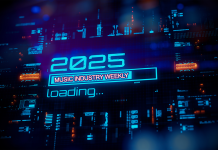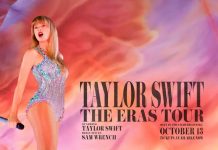Music vs. Politics: The question of whether musicians should remain neutral or leverage their platform for political activism has ignited debates across the music industry, particularly in the age of social media. Artists have long been at the forefront of political expression, from Bob Dylan’s protest anthems during the 1960s civil rights movement to Rage Against the Machine’s bold anti-authoritarian stance. However, in today’s highly polarized world, musicians face a more complex landscape where their words and actions are scrutinized by fans, critics, and industry insiders.
A History of Music and Politics
Artists have been intertwining music with political messages for decades. In the early 1990s, Rage Against the Machine made waves with their politically charged lyrics and live performances, using their platform to challenge government policies and social injustices. Similarly, Sinead O’Connor famously sparked controversy when she tore up a photo of Pope John Paul II during a live performance on Saturday Night Live, protesting the Catholic Church’s handling of sexual abuse allegations. This bold move effectively altered the trajectory of her career, highlighting the risks artists face when mixing music with politics.
Today, artists like Billie Eilish, Kendrick Lamar, and Megan Thee Stallion have also voiced their political stances, particularly on issues such as climate change, systemic racism, and social inequality. These musicians see their platforms not just as a stage for entertainment but as a tool for societal change.
Musicians’ Voices Amplified by Social Media
The rise of social media has significantly changed the way artists interact with their fanbase. Platforms like Twitter, Instagram, and TikTok allow musicians to broadcast their opinions instantly to millions of followers. This connectivity means that statements made by artists—whether on stage or online—can have immediate and far-reaching consequences. While many fans support artists taking a stand, others argue that musicians should stay neutral to avoid alienating certain segments of their audience.
Recent examples include Taylor Swift, who faced both praise and backlash when she broke her political silence to endorse progressive candidates in the 2018 U.S. midterm elections. Her decision sparked a broader conversation about the role of musicians in political discourse and whether it helps or harms their careers. On one hand, activism can deepen the bond between artists and fans who share similar values. On the other, it may lead to boycotts from those with opposing views.
Ethical Concerns: Fanbase and Career Risks
Engaging in political activism carries inherent risks for musicians. On the one hand, it can elevate an artist’s profile, drawing in fans who admire their stance. On the other, political statements can alienate listeners who disagree, leading to diminished record sales, canceled shows, or negative press. For example, country singer The Chicks (formerly known as The Dixie Chicks) experienced severe backlash, including boycotts, after criticizing then-President George W. Bush during a concert in 2003.
Additionally, artists who engage in political discourse must navigate how much transparency they wish to offer. Musicians like Childish Gambino and Run the Jewels have masterfully balanced commercial success while delivering sharp political critiques, whereas others may struggle to maintain broad appeal.
Conclusion: Should Musicians Stay Neutral or Engage in Activism?
Ultimately, whether artists should stay neutral or engage in political activism depends on their goals and personal convictions. For many, speaking out on social issues is an integral part of their artistry, while others may choose to prioritize commercial success by steering clear of controversial topics. As social media continues to amplify the reach of musicians’ voices, the music industry will likely see more artists use their platforms to advocate for change, reshaping not only their careers but also the cultural landscape.
Music Industry Weekly recognizes that by blending political expression with their creative output, musicians have the potential to inspire movements and challenge societal norms. However, they must also weigh the potential career risks and fan backlash that can arise from taking a stand on divisive issues.







